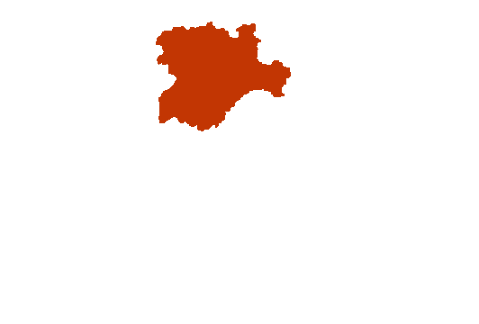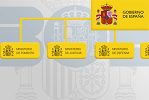Connection to gas services
Contenido de esta página
Connection to the gas network
All consumers have the right to be connected to the gas supply network in their area under the conditions laid down in the regulations in force. To do this, they need to contact the natural gas distribution company in the area.
The gas distribution company cannot actually provide the gas supply; this is done through a supply company, which may be part of the same business group as the distribution company. In that case, the distributor (otherwise known as transporter) must have a distinctive brand image so as not to create confusion with the supplier.
New connection to the gas network
If the property on which the home is located is not already connected to the distribution or transport network, the prospective natural gas consumer must ask the distribution or transport company in the nearest network for the corresponding supply connection.
This connection consists of the pipelines and auxiliary installations (used for a new gas supply or to extend an existing one) that go between the existing distribution or transport network and the service connection tap that cuts off the natural gas supply to users' receiving installations, including the tap itself.
The person requesting the supply connection must pay the connection fees. This price is set by the National Commission on Markets and Competition (CNMC) and depends on the maximum supply volume requested and the distance from the existing network.
The supply connection fees paid will remain assigned to the particular facilities, homes, premises, plots of land, etc. for which the fees were paid, however much time elapses.
Once the individual gas installation has been completed for a home and the corresponding installation certificate has been provided, issued by an authorised installer, the consumer needs to take out a contract with the supply company of their choice.
The supply company will request the start of service and supply from the distributor on the consumer’s behalf.
The distributor has a maximum of 6 business days to validate the request, plus another 6 business days to make the checks associated with service start-up and to proceed with ordering the service if the result of the checks is favourable.
What a user has to do when contracting a supply service
When the gas supply service is contracted or an existing service is extended by a new user, that user must pay the sign-up fee to the distributor company, which includes the following items:
- Service line connection: this is the operation of connecting the gas receiving installation to the network of the distributor company, which must perform this operation under its own responsibility.
- Verification of installations: the installations are reviewed and checked to ensure that they comply with the regulatory technical and safety conditions.
- In cases in which it is necessary to submit an authorized gas installer certificate, either because the installation is new or because it has been reformed, the verification fees will not be charged.
In accordance with paragraph 3 of Article 91 of Law 34/1998 of 7 October on the hydrocarbons sector, the autonomous communities will establish the economic arrangements for supply connection charges.
Choice of Gas Supplier
You can choose the supplier of your choice from all those offering their services in your area.
All consumers are free to take out a gas supply contract with the supply company they deem most suited to their needs and interests.
The list of all the supply companies can be found on the National Commission on Markets and Competition’s website.
Price comparison tool
To help consumers compare the supply deals on offer, the National Commission on Markets and Competition has developed a gas and electricity supply comparison tool at CNMC – Energy deals comparison![]() . This address appears on all invoices issued through a QR code.
. This address appears on all invoices issued through a QR code.
Last resort tariff
In general, natural gas sales prices are agreed upon freely between the consumer and the supplier. However, as a protection measure for small consumers, a last resort tariff was established. This is approved every quarter by the Directorate General for Energy Policy and Mines under the Ministry for Ecological Transition and the Demographic Challenge.
The last resort tariff is available to the following consumers:
a) individual consumers with a supply pressure equal to or below 4bar and an annual consumption below 50 000 kWh;
b) communities of owners’ of shared residential developments and buildings and groups of such communities, constituted in accordance with Articles 5 and 24 of Law 49/1960 of 21 July on horizontal property, and energy service companies that provide them with services;
c) publicly owned buildings used as residential dwellings and trust or non-profit organisation buildings used for the same purpose, and energy service companies that provide them with services.
In cases b and c, the following requirements must be met:
- individual heating meters or individual consumption distributors must be installed, unless there is an exemption from this obligation due to technical unfeasibility under the terms established in paragraph a) of Annex I to Royal Decree 736/2020 of 4 August regulating the metering of individual consumption of heating systems in buildings;
- the energy efficiency inspection must have been completed on time with a positive result, in accordance with Article 31 of Royal Decree 1027/2007 of 20 July approving the rules on heating systems in buildings.
Energy service companies making use of this tariff must pass on fully any savings made in the cost of purchasing natural gas at the unit price charged for the heating and hot water service.
The following is a list of last resort gas supply companies, with a link to their website and free customer service telephone number:
- Baser Comercializadora de Referencia, S.A.
900 100 502
- Comercializadora Regulada, Gas & Power, S.A.
900 902 947
- Curenergia Comercialización de Último Recurso, S.A.U.
800 760 333
- Energía XXI Comercializadora de Referencia, S.L.
900 100 309
Price comparison tool
To facilitate a comparison of supply offers, the National Commission on Markets and Competition has developed a tool for comparing offers for the supply of gas and electricity. You can see it here![]() .
.
Consumer Rights
Article 57 bis of Law 34/1998, of 7 October![]() , sets forth the rights of consumers with respect to the natural gas supply. Consumers have the following rights, among others:
, sets forth the rights of consumers with respect to the natural gas supply. Consumers have the following rights, among others:
- The right to choose the gas supply company.
- The right to request verification that the equipment they have installed works properly.
- The right to have telephone assistance service provided by the distributor to which their installations are connected, operating 24 hours a day, whom they can contact about possible safety incidents related to their installations. This number must be clearly identified on bills, and in any case will be provided to the consumer by the trader.
- The right to be informed if there is a contract change.
- The right to receive transparent information about prices, tariffs and general conditions that are applicable to accessing and using gas services.
- The right to freely choose the means of payment.
- The right to change suppliers at no cost.
- The right to have procedures available for processing their claims.
How to file a complaint
Suppliers that supply gas to end users must have a telephone number, a postal address and an email address at which consumers may request clear and understandable explanations of the items on their bills, as well as a customer service department for complaints, claims and incidents relating to the service taken out or provided, and for information requests on aspects relating to contracts and supply or communications. The telephone numbers, postal address and email address that consumers can use to contact the company must appear on the invoices and be free of charge.
If a customer is dissatisfied about the response to a complaint, the supply company must inform them about their rights regarding the dispute resolution channels available to them if they wish to take the matter further.
To resolve claims through administrative channels (in the case of domestic consumers), the Autonomous Community where the consumption point is located will hold jurisdiction, without prejudice to possible actions through court channels.
Likewise, it is possible (either previously or alternatively) to resolve a claim out of court through Consumer Arbitration Bodies, a system that can only be used if the parties voluntarily resort to it.
Non-payment of bills and interruption of supply
Consumers’ natural gas supply may be suspended when two months have elapsed since they have been duly requested to pay and payment has not been made. For these purposes, the requirement will be made by any means that allows recording the receipt thereof by the interested party or their representative, thereby also including the date, the identity and the content of the same.
Information for each Autonomous Community







Andalucía Aragón Asturias, Principado de Balears, Illes Canarias Cantabria Castilla y León Castilla-La Mancha Cataluña Ciudad de Ceuta Ciudad de Melilla Comunitat Valenciana Extremadura Galicia Madrid, Comunidad de Murcia, Región de Navarra, Comunidad Foral de País Vasco Rioja, La










